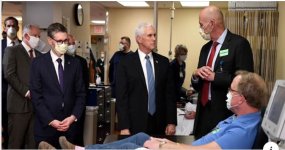“Rhode Island is shining a light into the dark in a way that very few other states are doing,” said Mark Lurie, a professor of epidemiology at Brown University in Providence. Rhode Island has been conducting an average of 283 tests per 100,000 residents a day, compared with 79 tests per 100,000 people in the United States over all.
...
Of late, state and local officials have turned their focus on testing to Pawtucket and Central Falls — dense, working-class cities nestled along the Seekonk River. These cities have multigenerational immigrant families, from Central America, Cape Verde and a dozen African nations, and many live tightly packed.
...
Rhode Island is one of the few states to attempt such widespread testing and tracing.
...
Ms. Raimondo and other officials have taken pains to make clear that the first months back will not resemble anything like pre-virus life. Retail stores could open for pickup of preordered items; restaurants with outdoor seating might soon be allowed to experiment. Each decision will entail a speculative, precarious calculus as the state tries to avoid new outbreaks. “We’re about to enter a whole new era of work,” she said.
To some extent, the many unionized city employees who have worked through the shutdown, in offices and on bridges and roads, have pioneered this new way of work life: They wear masks and gloves and have their temperature taken every day. Working hours are staggered, and meals are solitary affairs.

